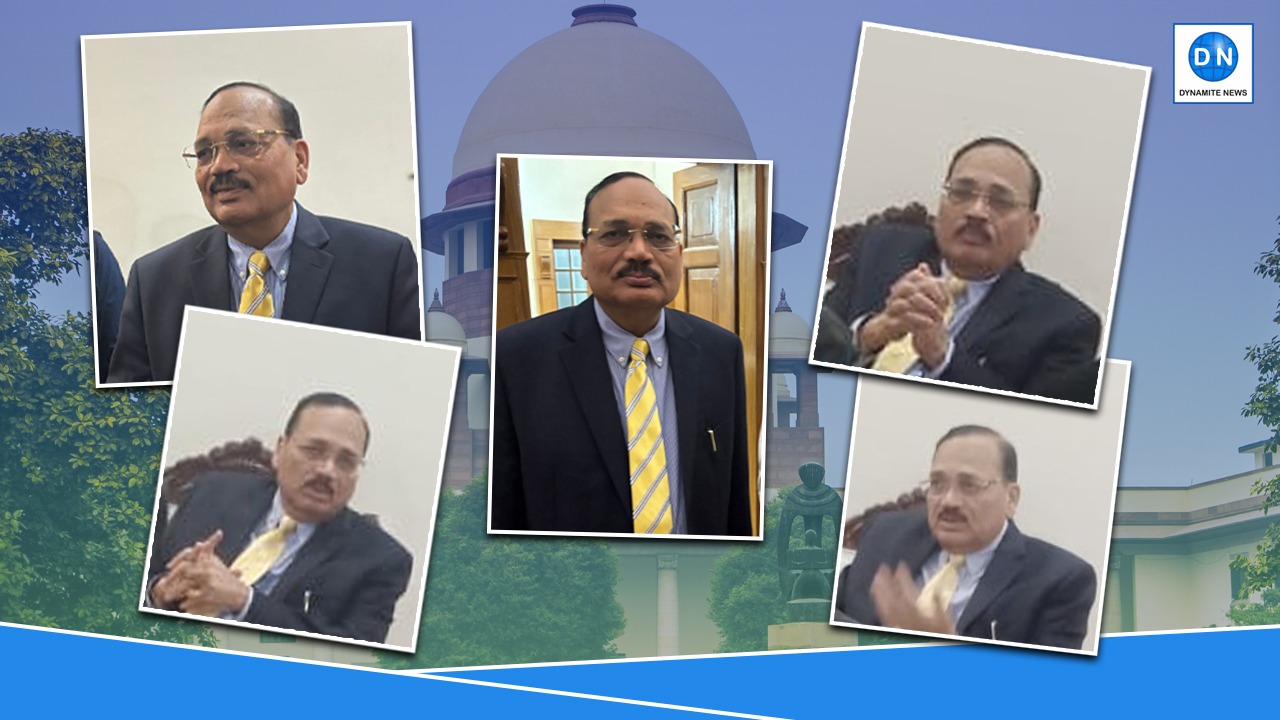 English
English

The Chief Justice of India–designate, Justice Surya Kant, met senior legal journalists covering the Supreme Court in an informal interaction on Saturday evening in the national capital. Full details exclusively on Dynamite News.

Justice Surya Kant during the informal interaction with legal journalists
New Delhi: In this interaction, CJI-designate Justice Surya Kant outlined the key priorities and focus areas of his upcoming tenure as the 53rd Chief Justice of India.
1. Mediation can be a game changer: “Mediation is one of the ways to reduce the huge pendency of cases,” Justice Surya Kant said, emphasising that alternative dispute resolution would be a crucial component of judicial reforms.
2. Judges must stay above social media pressure: Justice Surya Kant stressed that judges should not come under pressure from social media trolling or commentary, asserting that judicial independence must remain paramount.
3. Foreign judges to attend oath ceremony: He shared that several foreign judges are expected to attend his oath ceremony, noting that the Indian judiciary is highly respected globally. Such visits, he said, foster mutual respect and provide platforms for knowledge exchange.
4. Top priorities- Arrears and Mediation: Highlighting the scale of pendency, he said, “My foremost agenda is to reduce arrears. Two things are my top priorities: arrears and mediation. With 90,000 cases pending, clearing the oldest matters is essential. Mediation- especially in High Courts and district courts, could be a key solution.”
5. Morning routine amid Delhi AQI concerns: “I walk for at least an hour every morning,” Justice Surya Kant said in response to a question on Delhi’s deteriorating air quality.
6. On Artificial Intelligence: “AI has its advantages as well as challenges. We will identify its loopholes. The Supreme Court will also examine issues arising from errors made by tools like ChatGPT,” he said while responding to a question on technology.
7. On demand for more High Court benches: Asked about demands for additional High Court benches, such as one in Meerut, he said this is a big issue. He clarified that the matter does not fall directly under the Supreme Court’s jurisdiction and involves multiple institutional stakeholders. Uttar Pradesh, being a very large state, would require a holistic and well-considered assessment for any new bench.
8. Matters of national importance: “Matters of national importance can be heard at any time. It does not matter whether a senior advocate or a junior advocate appears,” he remarked.
9. On foreign judicial participation: Justice Surya Kant added: “The Indian judiciary is highly respected globally. Such visits reflect mutual respect and facilitate the exchange of knowledge. Kenya, for instance, has shown interest in establishing a judicial academy. More MoUs—especially in judicial training—are likely to be signed.”